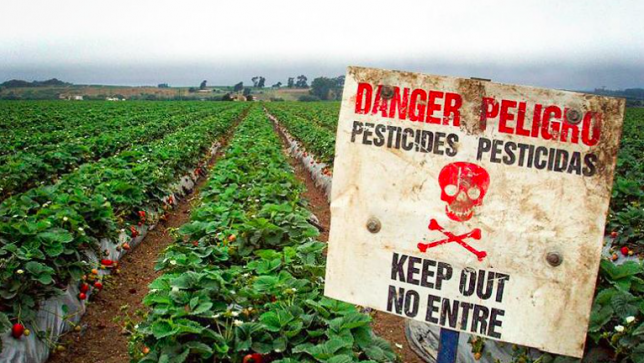Plans to boost trust in the EU approval procedure by making it more transparent and accountable were put forward by the special committee on pesticides.

Source: www.eureporter.co
Among many proposals, MEPs agreed last week that the public should be granted access to the studies used in the procedure to authorize a pesticide, including all the supporting data and information relating to the applications.
MEPs note that concerns have been raised about the right of applicants to choose a particular member state to report on the approval of an active substance to the European Food Safety Authority (EFSA), as this practice is seen as lacking in transparency and could entail a conflict of interests. They call on the Commission to allocate the authorisation renewal to a different member state.
During the procedure, applicants should be required to register all regulatory studies that will be carried out in a public register, and allow for a “comment period”, during which stakeholders are able to provide additional existing data to ensure that all relevant information is taken into account before a decision is made.
Post-market evaluation and real-life impact
Post-market evaluation should be strengthened, and the Commission should launch an epidemiological study on the real-life impact of pesticides on human health, MEPs say. They also propose to review existing studies on carcinogenicity of glyphosate and to set maximum residue levels for soils and surface water.
Political accountability
MEPs finally stress the need to ensure political accountability when authorization is adopted in the form of implementing acts – in the so-called “comitology procedure”. Commission and member states should publish detailed minutes and make their votes public.
“We need evolution, not revolution. The adopted report underpins this spirit to expand and improve the best authorisation system in the world”, said co-rapporteur Norbert Lins (EPP, DE). “Today we put forward recommendations without overhauling structures which work. We want to make sure the authorisation procedure for plant protection products remains science-based and relies on independent, transparent and efficient processes”, he said.
“We ask for full transparency with regard to the studies used for the assessment, to make them more independent and based on scientific evidence, to avoid conflicts of interests, to fully test active substances, to thoroughly test pesticide products, including the cumulative effects and for stronger risk management measures,” said co-rapporteur Bart Staes (Greens/EFA, BE).
“There are common positions on the essential elements”, said Committee Chairman Eric Andrieu (S&D, FR). “It is a question of revising the protocol for the authorization of molecules and making concrete recommendations. This is the mission we set ourselves in order not to get lost in the many challenges” he recalled. “In particular, we ask member states to no longer approve synthetic active substances,” he said.
Next steps
The recommendations were adopted with 23 votes to 5 and 1 abstention. The full House is to vote on the report during its 14-17 January plenary session in Strasbourg.
Background
Nine years after the adoption of the Plant Protection Products Regulation (Regulation (EC) No 1107/2009) and following the controversy about the renewal of glyphosate, the European Parliament, on 6 February 2018, set up a Special committee on the European Union’s authorisation procedure for pesticides. The PEST Committee’s mandate, as laid down in Parliament’s decision of 6 February 2018, required the special committee to look into the EU’s authorization procedure for pesticides as a whole.
The co-rapporteurs presented their draft report in September 2018. It included many suggestions on how to improve the procedure, focusing on the issues laid down in the mandate, such as transparency, independence and resources.


















